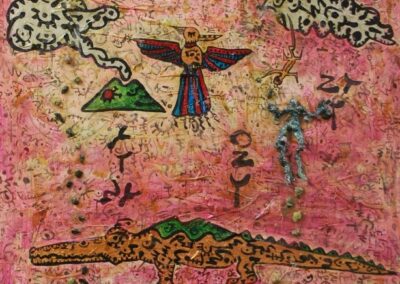SAKUNA: retrieving non-Western understandings of disasters in the Philippines
Responsables : Jean-Christophe Gaillard et Jake Rom D. Cadag
Contemporary discourses on disasters in the Philippines are shaped by a Western understanding of the world. That is, disasters sit at the interface between nature and society and reflect the impact of extra-ordinary natural hazards that affect vulnerable people. This understanding of what a disaster is was imposed upon local societies by the Spanish colonisers as a result of the flourishing of Enlightenment ideas in Europe since the 18th century. However, there exists no exact translation for such interpretation in Philippine languages, so that local people currently resort to loans from foreign languages to capture such experience of harm and suffering: disaster, kalamidad and sakuna. The later, very frequently used nowadays, is most interesting as it is a Sanskrit term, which usage predates Western influence and refers to a bird of omen. The project aims to unpack the nature, scope and usage of the concept of sakuna. Our specific objectives are 1/ to explore how the concept of sakuna reflects its Sanskrit origin and a bird of (bad) omen; 2/ to assess the significance of contemporary omens in understanding natural hazards and disasters; 3/ to investigate how such omens currently co-exist with Western scientific understanding of natural hazards and disaster; 4/ to identify opportunities and challenges for reclaiming non-Western understandings of natural phenomena/hazards in policies and practices for disaster risk reduction.
Début : mars 2024
Durée: 1 an
Financement: CG 976
Partenaires:
– Waipapa Taumata Rau / The University of Auckland
– University of the Philippines Diliman
– Department of Education – City Division of San Fernando, Philippines
Territoires étudiés: Régions kapampangan et tagalog aux Philippines

